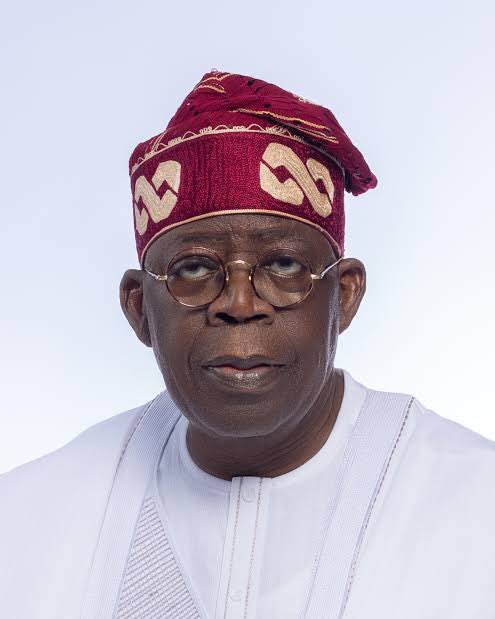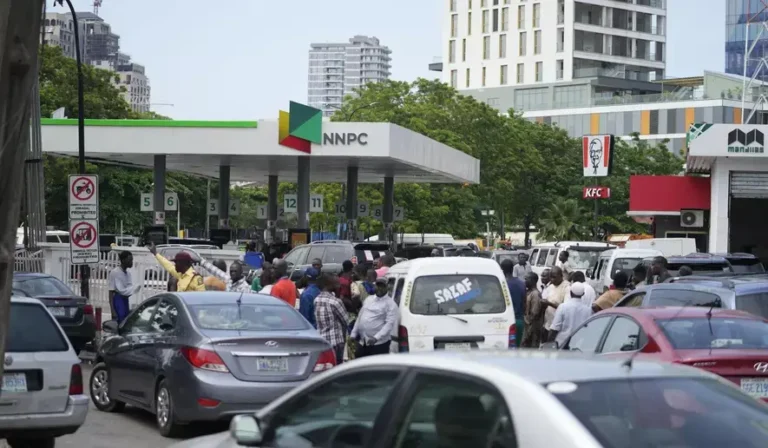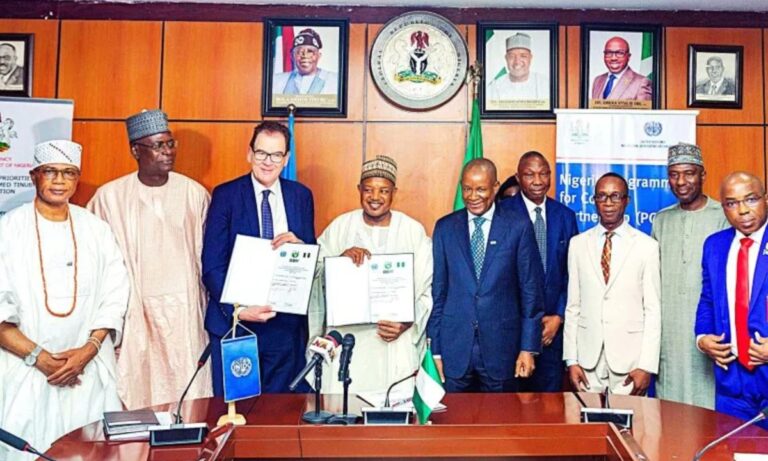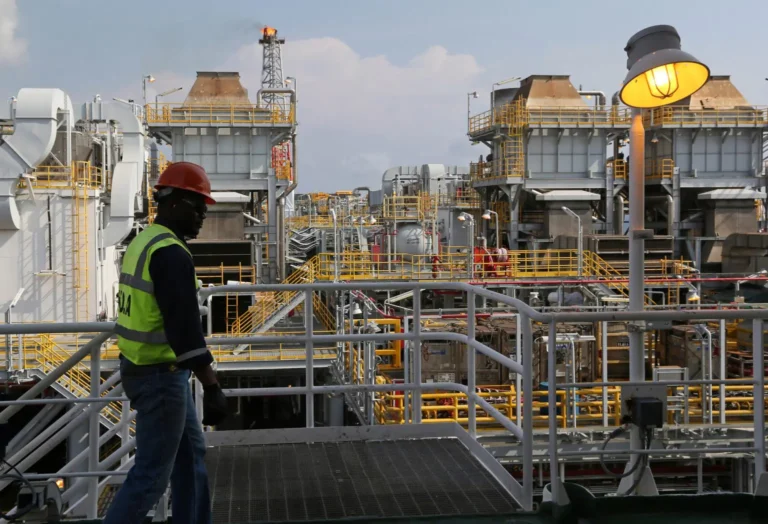
The Independent Media and Policy Initiative (IMPI) has described recent comments by the Presidential Candidate of the Labour Party in the 2023 election, Peter Obi, on using money to drive economic productivity as not only simplistic but also hollow.
The policy group noted that Mr Obi’s position which he canvassed in a recent TV interview shows a pedestrian understanding of the national economy.
In a policy statement signed by its Chairman Dr Niyi Akinsiju, IMPI, argued that economic productivity is not a stand-alone item that could be automatically fixed with a single-dose action.
It said: “We do not begrudge Mr Obi accusing the administration of President Bola Ahmed Tinubu of being ineffective in implementing economic policies but
we consider his proposition of injecting money into productivity as the singular solution to Nigeria’s economic malaise in the first two years of this administration, if he were to be the President, as manipulative and borne of a deficient understanding of historical issues that underline Nigeria’s economic trajectory.
“He claims his silver bullet proposition would lead to a more productive and sustainable economy. Coming from a former governor and one who had chaired the board of a commercial bank, we found this submission puzzling and, at the same time, vexatiously narrow.
“The fact is that productivity is not a stand-alone item in the universe of economic productivity. It is, by fact and praxis, made up of different components and values aggregation.
“Economic productivity, which implies the efficiency of an economy in producing goods and services, is influenced by human capital (education, skills), technology, physical capital (equipment), natural resources, and entrepreneurship.
“Driving economic productivity supposes an overall strategy to streamline these factors and generate the appropriate quantum of revenue to invest in them while considering the period it would take to gestate and impact the economic space.”
The policy group pointed at Nigeria’s economic challenges and wondered what the former Anambra state governor would have done differently from steps taken by the Tinubu administration.
“Since 2014, Nigeria has had to contend with challenges of low revenue exacerbated by policies that continuously erode productivity, such as fuel subsidies and multiple exchange rates.
“Despite the storm associated with the removal of fuel subsidies and the harmonization of multiple foreign exchange windows, the Tinubu administration expressed a profound understanding of the national economy by conducting the equivalence of a surgical incision on the economy.
Tangential to this is the “injection of money into productivity” single-dose treatment of the nation’s economic malaise advocacy by Mr Obi.
“In an economy characterised by low revenue and huge accumulated debt as of the May 29, 2023 handover date, Mr Obi has left us wondering what exact policy options he would have deployed to achieve his “monetary injection into productivity” policy if he were President.
“To put it in context, we wonder how and what routes Mr Obi would wish to adopt in the first two years of his Presidency to accomplish his vaunted policy if he were in President Tinubu’s shoes.
“This is, more, in the face of a legacy of a fiscally constrained economy that manifests in a trifecta of headwinds witnessed from the second half of 2014 through to the disruptions occasioned by the 2020 Covid pandemic and the gross economic erosion recorded in the Covid era through to the post-Covid years to 2023 when the Tinubu administration, determinedly commenced the engineering of a paradigm change of the nation’s economic template.
“Against this background, we consider it somewhat perplexing that Mr Obi would criticise the Tinubu administration for ‘floating the naira in the absence of productivity while also increasing the country’s debt profile and the cost of debt servicing’ which, according to him, was above the budgetary allocation for critical sectors like health and education.
“We consider this sweeping averment on the character of Nigeria’s emerging economy under the Tinubu administration to be either the outcome of unbridled ignorance about the workings of an economy or a deliberate manipulation of facts and reality to exploit Nigerians’ base political sentiments,” the policy group said.
IMPI added that contrary to Obi’s claims, its analysis which aligns with that of the World Bank shows that there are enough pointers to the success of the ongoing economic reforms.
“Against Mr Obi’s merchant-minded, import-focused understanding of the depreciation of the naira as a consequence of floating the local currency and the diminished value of the naira relative to other currencies, data from the National Bureau of Statistics (NBS) show that Nigeria recorded in 2024 a total trade volume of N138 trillion or $89.9 billion, the highest in the country’s history, representing a 106% increase compared to the previous year.
“We also observe how the national economy is shifting from a low revenue-earning to an increasing capacity for high revenue generation, as shown in the quantum of revenue available to be shared among the three tiers of government by the Federation Accounts and Allocation Committee (FAAC).
“In 2024, Nigeria’s Federation Account received ₦15 trillion in revenue, with a 43% jump in disbursements to the Federal Government, States, and Local Government Councils. In contrast, N10.143 trillion was received and shared among the tiers of government as statutory revenue allocations in 2023.
In this light, Mr Obi’s conjecture on economic issues shows a truly deficient comprehension of the dynamics of economics and their real-life application,”it noted.
The policy group also questioned Obi’s understanding of the constitutional mandates of the tiers of government on the basis of his position on the President taking responsibility for primary healthcare and basic education in Nigeria
We have reviewed the submissions and responses made by the Labour Party candidate in the 2023 presidential election, Mr Peter Obi, on a television station’s news interview programme. Considering his public standing and antecedents, we found his specious generalisation of the nation’s economic environment and his proffered solutions utterly simplistic, commonplace, and confounding.
We do not begrudge Mr Obi accusing the administration of President Bola Ahmed Tinubu of being ineffective in implementing economic policies. However, we consider his proposition of injecting money into productivity as the singular solution to Nigeria’s economic malaise in the first two years of this administration if he were to be the President as manipulative and borne of a deficient understanding of historical issues that underline Nigeria’s economic trajectory.
He claims his silver bullet proposition would lead to a more productive and sustainable economy.
Coming from a former governor and one who had chaired the board of a commercial bank, we found this submission puzzling and, at the same time, vexatiously narrow. The fact is that productivity is not a stand-alone item in the universe of economic productivity. It is, by fact and praxis, made up of different components and values aggregation.
Economic productivity, which implies the efficiency of an economy in producing goods and services, is influenced by human capital (education, skills), technology, physical capital (equipment), natural resources, and entrepreneurship. Driving economic productivity supposes an overall strategy to streamline these factors and generate the appropriate quantum of revenue to invest in them while considering the period it would take to gestate and impact the economic space.
Since 2014, Nigeria has had to contend with challenges of low revenue exacerbated by policies that continuously erode productivity, such as fuel subsidies and multiple exchange rates. Despite the storm associated with the removal of fuel subsidies and the harmonisation of multiple foreign exchange windows, the Tinubu administration expressed a profound understanding of the national economy by conducting the equivalence of a surgical incision on the economy.
Tangential to this is the “injection of money into productivity” single-dose treatment of the nation’s economic malaise advocacy by Mr Obi. In an economy characterised by low revenue and huge accumulated debt as of the May 29, 2023 handover date, Mr Obi has left us wondering what exact policy options he would have deployed to achieve his “monetary injection into productivity” policy if he were President.
To put it in context, we wonder how and what routes Mr Obi would wish to adopt in the first two years of his Presidency to accomplish his vaunted policy if he were in President Tinubu’s shoes. This is, more, in the face of a legacy of a fiscally constrained economy that manifests in a trifecta of headwinds witnessed from the second half of 2014 through to the disruptions occasioned by the 2020 Covid pandemic and the gross economic erosion recorded in the Covid era through to the post-Covid years to 2023 when the Tinubu administration, determinedly commenced the engineering of a paradigm change of the nation’s economic template.
Against this background, we consider it somewhat perplexing that Mr Obi would criticise the Tinubu administration for floating the naira in the absence of productivity while also increasing the country’s debt profile and the cost of debt servicing, which, he said, was above the budgetary allocation for critical sectors like health and education.
We consider this sweeping averment of the character of Nigeria’s emerging economy under the Tinubu administration to be either the outcome of unbridled ignorance about the workings of an economy or a deliberate manipulation of facts and reality to exploit Nigerians’ base political sentiments. Indeed, nothing reeks of sophistry more than this ill-anchored generalisation of the state of the Nigerian economy.
Contrary to Mr Obi’s doomsday characterisation of the Nigerian economy, our reading of the national economy indicates an emerging economy forged in the best tradition of inclusive growth, market-determined conditions, and the facilitation of participatory international trade.
Against Mr Obi’s merchant-minded, import-focused understanding of the depreciation of the naira as a consequence of floating the local currency and the diminished value of the naira relative to other currencies, data from the National Bureau of Statistics (NBS) show that Nigeria recorded in 2024 a total trade volume of N138 trillion or $89.9 billion, the highest in the country’s history, representing a 106% increase compared to the previous year.
We also observe how the national economy is shifting from a low revenue-earning to an increasing capacity for high revenue generation, as shown in the quantum of revenue available to be shared among the three tiers of government by the Federation Accounts and Allocation Committee (FAAC).
In 2024, Nigeria’s Federation Account received ₦15 trillion in revenue, with a 43% jump in disbursements to the Federal Government, States, and Local Government Councils. In contrast, N10.143 trillion was received and shared among the tiers of government as statutory revenue allocations in 2023.
In this light, Mr Obi’s conjecture on economic issues shows a truly deficient comprehension of the dynamics of economics and their real-life application.
This is even more grievous in the context of Mr Obi criticising the high interest rate under Tinubu when anybody with a basic understanding of economics knows that interest rate, per term, is determined by Central Banks, in the case of Nigeria, the Central Bank of Nigeria, with the executive arm of the federal government, by law, restricted from any form of intervention in the monetary policy affair of the CBN.
An adjunct to this is Mr Obi’s claim that he would fix primary healthcare centres and schools if he were President. Again, within what context does he plan to do this? By constitutional mandates, primary health care centres and primary schools are strictly within the purview of the Local Government Area Council tier of government. Thus, the best a federal administration can do is through interventions like the Universal Basic Education Commission (UBEC) or the National Primary Healthcare Development Agency (NPHCDA).
Our prognosis of the Tinubu administration’s management of the Nigerian economy agrees with the World Bank overview of Tinubu’s economic template, which reads thus:
“Since May 2023, Nigeria has implemented significant reforms to stabilise its economy, resulting in modest growth, improved fiscal health, and rising foreign exchange reserves. While these measures were necessary to urgently avert a budgetary crisis and place Nigeria on a stronger development path, they have imposed short-term pressures on households and businesses.
“Positive results from these reforms are starting to show at the macroeconomic level. For example, output growth has remained modest overall, but inched higher through mid-2024 as oil sector output has stabilised and activity in some services has been robust. The fiscal position is also improving, with the Federal Government’s fiscal deficit narrowing to 4.4% of GDP in the first half of 2024 from 6.2% in the first half of 2023, helping to mitigate debt-related risks. Foreign exchange reserves – a buffer against external shocks – have risen from $32.9 billion at the end of 2023 to more than $38.8 billion by mid-October 2024. However, inflation remains high, and inched up again in September 2024, mainly due to the most recent gasoline price increases and recent floods.
“Given these promising results, the new direction of macroeconomic policies should be sustained, including the Central Bank of Nigeria’s appropriately tight monetary policy stance. Complementing them with measures to address long-standing structural constraints will enable faster progress in the fight against inflation, and spur the investment, growth, and jobs which Nigeria urgently needs.
“The macroeconomic reforms, if sustained and expanded, will create a new platform to ignite growth and poverty reduction, while ongoing reforms will boost international competitiveness, increase the attractiveness of Nigeria for domestic and foreign investments, and have started to reduce debt-related fiscal risks and reopen fiscal space.”
Nothing can be more accurate and reflective of the Nigerian economic situation than this World Bank submission. In stark contrast, Mr Obi’s analysis reflects a pedestrian understanding of the national economy.
In conclusion, we appeal to Mr Obi to be more upfront in his public engagements and always ensure the preeminence of truth and genuineness of facts and figures. Politicians should collaborate to facilitate development and economic growth in a peaceful atmosphere, which Nigerians deserve.


